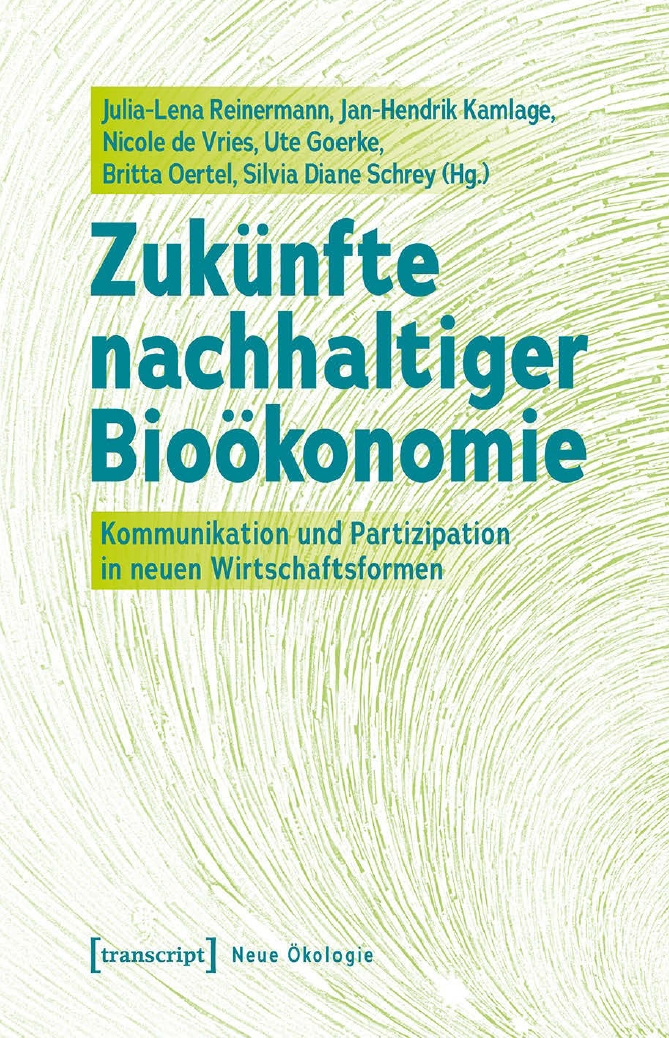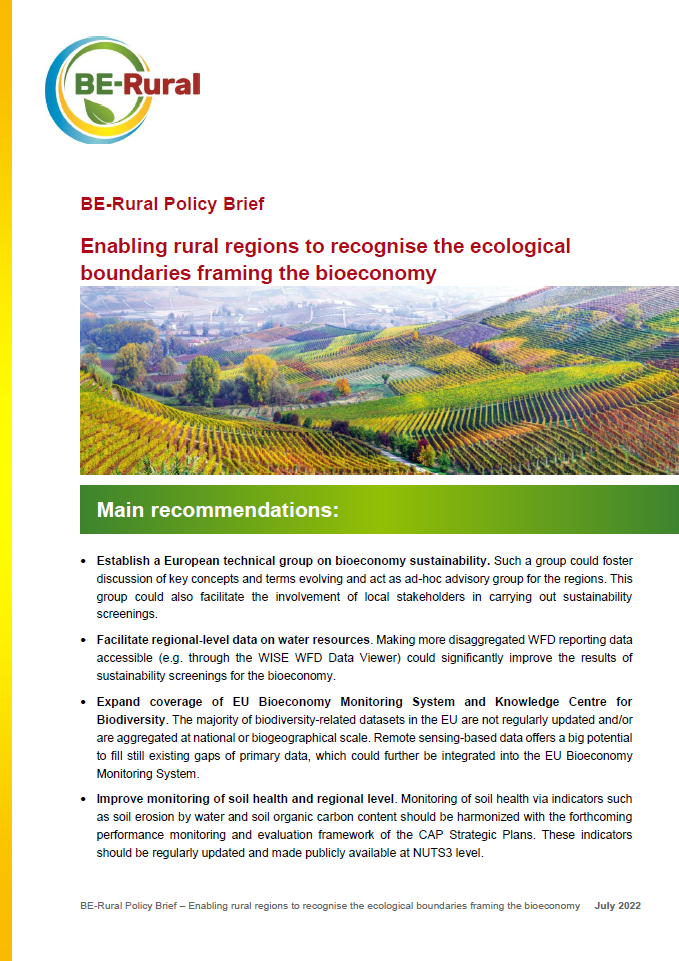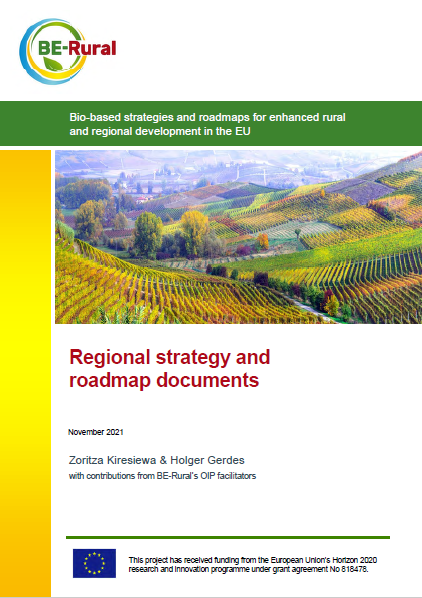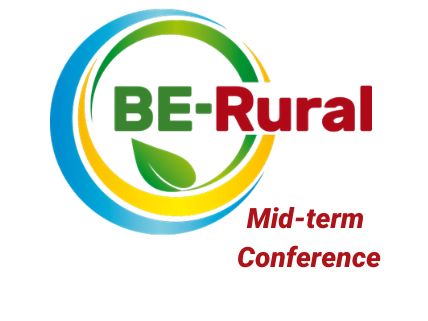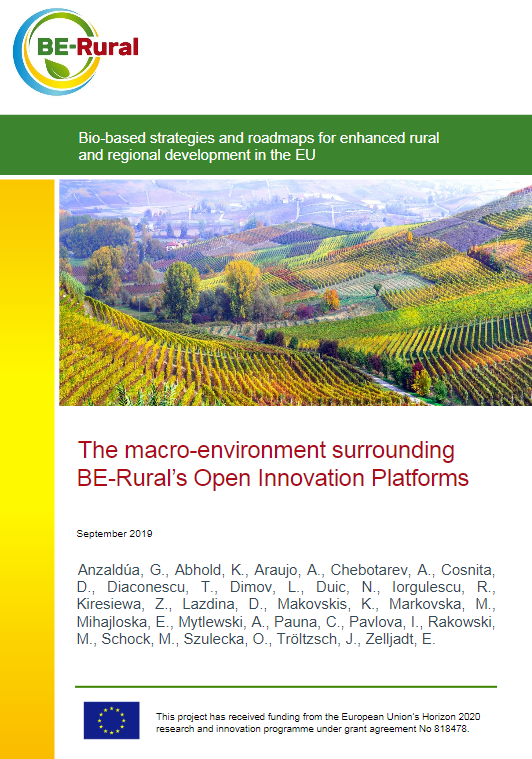Note on the Development of a Sustainability Screening for Regional Bioeconomy Strategies
Deliverable 5.4 H2020 Research project BE-Rural
- Publication
- Citation
Anzaldúa, Gerardo et al. (2022). D5.4 Note on the development of a sustainability screening for regional bioeconomy strategies. Deliverable of the H2020 BE-Rural project.
This report provides the context and justification for the development of BE-Rural's Sustainability Screening, a description of its methodological procedure, and the syntheses of results from the two experimental implementations of the approach in the Stara Zagora and Vidzeme regions, which are included in full as annexes to this report. The last chapters present the main lessons learned from these two pilots and the overall conclusions of the task.
The bioeconomy carries great potential for achieving various policy aims related to sustainability. However, sustainability is not an intrinsic characteristic of the bioeconomy, but a potential it could achieve. For this reason, improving our capacity to assess the environmental impacts of bioeconomy development is of great importance if we are to ensure the sustainability of the transition at hand. This could be significantly challenging for regions which lack established structures and consistent instances for collaboration on the topic and depend largely on project-based impulses.
Regions are agreed to be the most appropriate territorial level at which to implement bioeconomy strategies. Similarly, the effects of bioeconomic activities can be best observed at a regional scale, particularly in terms of social and environmental impact. Yet, the available and favoured methods for assessing bioeconomy potential and environmental impact are rarely framed within the regional scale. Further, practical applications of sustainability assessments vary in their balance of environmental,
social and economic dimensions. The former often appears to be comparatively more elusive, as methodological frameworks for its analysis are less numerous, underdeveloped, and less known. We think this can increase the risk of planners, facilitators, project consortia, etc. failing to consider the environmental dimension of sustainability adequately when developing a regional bioeconomy strategy/roadmap, especially in rural areas.
The aim of the BE-Rural Sustainability Screening is to support decision-makers to incorporate considerations of ecological limits into their regional bioeconomy strategies and roadmaps, and with this to contribute to Action 3 of EU Bioeconomy Strategy: "Understand the ecological boundaries of the bioeconomy". As an initial and exploratory task to be taken up in future initiatives (e.g. the upcoming Horizon Europe project SCALE-UP), the main purpose of this work has been to investigate the
following research questions:
- a) To what extent is it possible to combine openly accessible, regularly updated regional data (i.e. NUTS3 or similar) on water, land, biodiversity and biomass into a structured framework to draw broad indications of what potential ecological limits are in a given region?
- b) To what extent would it possible to compare these indicative "baseline" results with state-of-the-art research on the environmental impacts of particular bioeconomic activities and management practices?
- c) How much effort would it require to extract meaningful information from this that could inform decision-making and participatory processes?
- d) What are the main gaps and barriers that users of this framework would encounter?
To do so, a working concept of the sustainability screening has been formulated and piloted in two BERural OIPs: Stara Zagora, Bulgaria and in Vidzeme, Latvia. The development process employed has been an iterative and incremental one, with a broad outline of the approach defined at the start of the task and further shaped and refined as practical experiences were gathered during the pilots.
